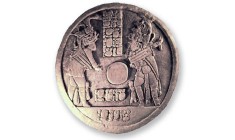Protection Against Trafficking in Cultural Property
Mackenzie, S. (2009) ‘Protection against trafficking in cultural property’. Vienna: UNODC.
The world has become increasingly aware that the theft and trafficking of CP is a major problem. Most debate has centred on archaeologically important artefacts, which can be very valuable. Much of it is still buried under the ground or otherwise “in situ” as part of a temple or other heritage structure. Items can be illegally removed from temples or gravesites in one country (the “source” country) and trafficked internationally for sale in a “market” country. In the case of underground thefts, the associated destruction of “context” means that through looting, archaeologists lose the capacity to gather knowledge about the past. CP can also be stolen from museums or private collections. Like many illicit markets, source countries for antiquities tend to be developing countries whereas market countries are richer, developed nations. However some major market countries are also the source of local looted antiquities as well as being markets for these and for others which come from overseas.
